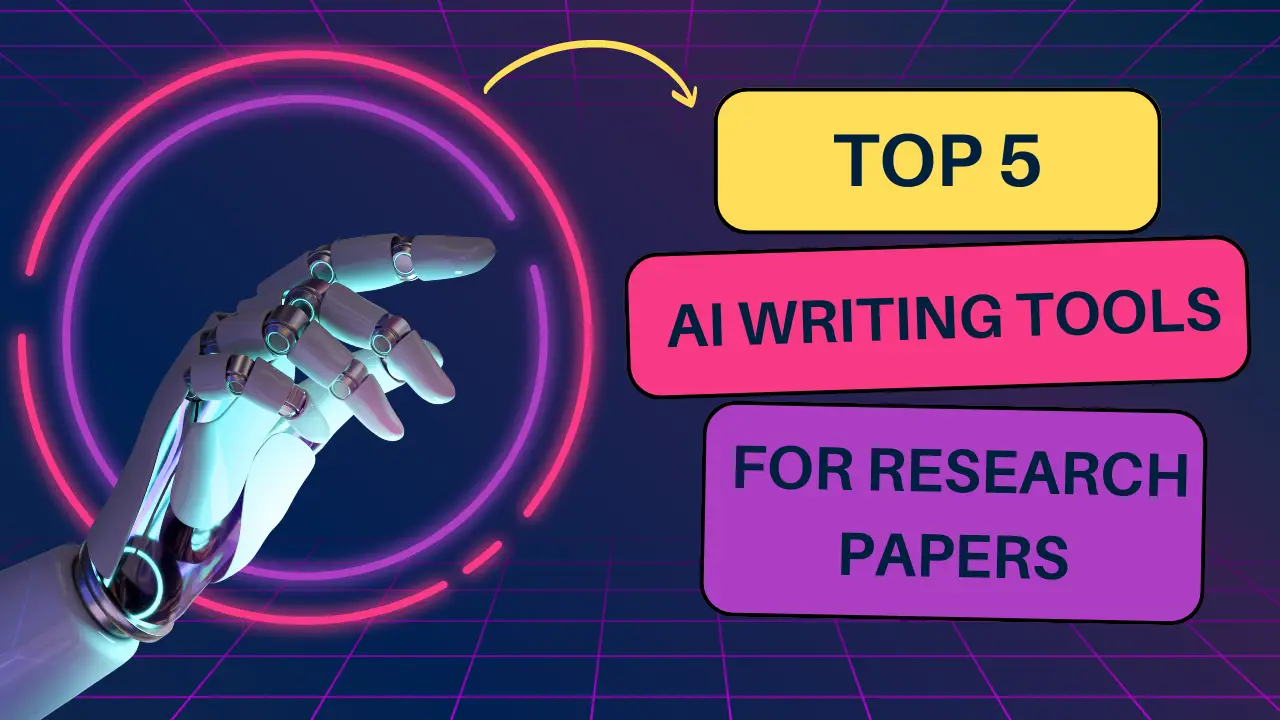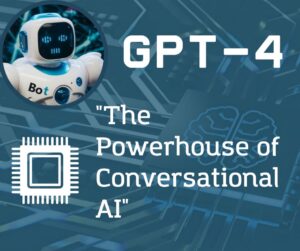In this article, we provide valuable insights into the most cutting-edge AI writing tools tailored specifically for researchers and scholars. We will delve into the world of AI-powered writing solutions that cater to the unique needs of academics, helping you elevate your research papers and propel them to the top ranks of Google search results and get citations.
Table of Contents
The Advancements in AI Writing Technology
In the fast-paced digital era, technological advancements have made their way into every facet of our lives, including academic research and writing. The emergence of Artificial Intelligence (AI) has revolutionized the way researchers approach their writing tasks. Gone are the days of laboriously constructing sentences and grappling with grammar intricacies. AI writing tools have emerged as a game-changer, offering a blend of precision, speed, and creativity to researchers worldwide.
The cutting-edge AI algorithms fueling these writing tools enable them to analyze and understand human language, mimicking the thought process and writing style of a seasoned researcher. This results in the generation of coherent, well-structured, and relevant content, significantly reducing the time and effort researchers invest in the writing process.
Embracing the Power of Natural Language Processing (NLP)
One of the most transformative aspects of AI writing tools is Natural Language Processing (NLP). This groundbreaking technology empowers AI systems to comprehend, interpret, and generate human language in a manner that closely resembles how humans communicate. The implications for research paper writing are profound.
NLP-powered AI writing tools can dissect complex research topics, identify relevant sources, and extract key information, streamlining the process of gathering valuable data. Moreover, these tools facilitate seamless communication by automatically identifying and rectifying grammatical errors, thereby ensuring that the final research papers adhere to the highest standards of clarity and eloquence.
1. The Efficacy of GPT-3.5 (Generative Pre-trained Transformer 3.5)
Among the myriad AI models transforming the landscape of writing tools, one stands out as a true trailblazer – GPT-3.5, developed by OpenAI. This state-of-the-art language generation model has reshaped the way researchers approach their writing endeavors. With its immense processing power and vast pre-trained dataset, GPT-3.5 can generate human-like text with astounding accuracy and coherence.
GPT-3.5 is capable of producing anything from simple sentences to entire research papers, making it a versatile tool for researchers seeking to bolster their search engine rankings. By leveraging GPT-3.5, researchers can craft authoritative, well-researched, and engaging content that attracts both readers and search engine algorithms.
2. Harnessing the Power of Grammarly
Writing with impeccable grammar and style is a hallmark of exceptional research papers. Grammarly, a leading AI-powered writing assistant, has emerged as a crucial tool for researchers seeking to elevate the quality of their work. This sophisticated AI system offers real-time grammar and spell-checking, ensuring that researchers present polished and error-free papers.
The importance of flawless writing cannot be understated. Google’s algorithms increasingly favor content that provides an exceptional user experience, and that includes content free from grammar errors. By employing Grammarly, researchers can confidently deliver well-crafted papers that resonate with readers and search engines alike, enhancing their chances of ranking higher on Google.
3. Copyscape – Ensuring Uniqueness and Originality
For researchers, maintaining the authenticity and originality of their work is paramount. Plagiarism can tarnish a researcher’s reputation and adversely impact search engine rankings. Copyscape, an AI-powered plagiarism checker, is a potent weapon against duplicate content and academic misconduct.
Copyscape scours the vast expanse of the internet, comparing the researcher’s content with existing online sources to detect potential matches. By utilizing Copyscape, researchers can rest assured that their work is unique and free from plagiarism, enhancing their credibility in the eyes of both readers and search engines.
4. Ref-N-Write – Your Research Assistant
Writing a research paper that meets academic standards while maintaining coherence and originality can be challenging. This is where Ref-N-Write comes to the rescue. Ref-N-Write is an AI writing tool specially curated for academics and researchers. It offers a comprehensive database of academic phrases and templates, streamlining the writing process.
With Ref-N-Write, researchers can access a treasure trove of scholarly expressions and content structures, enabling them to produce well-structured and academically sound papers. By leveraging this tool, researchers can create research papers that stand out for their meticulous organization and impactful content, boosting their chances of ranking higher on Google.
5. Zotero – Organize, Cite, and Succeed
In the world of academic research, proper organization and accurate citations are essential. Zotero, an AI-driven research manager and citation tool, simplifies the process of organizing research materials and generating citations. With its intuitive interface, Zotero helps researchers collate and manage references efficiently.
By ensuring that citations are meticulously formatted and research materials are well-organized, Zotero enhances the overall quality of research papers. Such attention to detail contributes to improved search engine visibility, as Google values well-documented and well-referenced content.
Best Practices for Utilizing AI Writing Tools
While AI writing tools offer immense benefits, it is essential to follow best practices to maximize their potential. Here are some tips to consider:
- Stay True to Your Research Objectives: AI tools should complement your research, not overshadow it. Always maintain a clear focus on your objectives and let AI enhance your work accordingly.
- Quality over Quantity: While AI tools can expedite the writing process, prioritize quality content over mass production. Google’s algorithms reward valuable and insightful content.
- Keyword Strategy: Conduct thorough keyword research to identify relevant and high-impact keywords. Strategically incorporate these keywords into your research papers to improve their search engine visibility.
- Review and Revise: AI tools are not infallible. Always review and revise the output generated by these tools to ensure accuracy and coherence.
FAQs
Q1: Are AI writing tools capable of replacing human researchers?
A1: AI writing tools are not designed to replace human researchers but rather to augment their capabilities. While these tools can streamline the writing process and enhance efficiency, they lack the creative and critical thinking abilities that are unique to human researchers. AI tools excel at generating content based on patterns and data, but they still rely on human researchers to provide the original insights and expertise that form the foundation of research papers.
Q2: Can AI writing tools ensure 100% plagiarism-free content?
A2: While AI writing tools like Copyscape are potent weapons against plagiarism, they are not infallible. Their effectiveness depends on the comprehensiveness of their database and the accuracy of their algorithms. Researchers should still exercise caution and cite their sources properly to avoid unintentional plagiarism. Additionally, combining Copyscape with other plagiarism checkers and manual review can further bolster the authenticity of research papers.
Q3: How do AI writing tools impact the SEO of research papers?
A3: AI writing tools can significantly impact the SEO of research papers by enhancing their overall quality and relevance. By generating well-structured and informative content, these tools increase the chances of research papers being ranked higher on search engine results pages (SERPs). Moreover, AI tools can help researchers incorporate relevant keywords strategically, further optimizing their papers for search engines.
Q4: What role do AI writing tools play in language diversity and inclusivity?
A4: AI writing tools have the potential to promote language diversity and inclusivity in research papers. These tools can assist researchers in translating their work into different languages, making research findings accessible to a broader global audience. Additionally, AI writing tools can offer suggestions to ensure the use of inclusive language, promoting sensitivity and representation in academic discourse.
Q5: Can AI writing tools identify and correct bias in research papers?
A5: While AI writing tools can assist in detecting certain types of bias, they are not equipped to address all forms of bias in research papers. Researchers should still critically review their work to ensure it is free from biases related to gender, race, ethnicity, or other factors. Combining AI tools with human judgment and perspective remains crucial to produce unbiased and ethically sound research papers.
Q6: What are the ethical considerations when using AI writing tools in research?
A6: Researchers must be mindful of the ethical implications of using AI writing tools. They should ensure that the tools they employ respect intellectual property rights and comply with ethical guidelines for data usage and privacy. Moreover, researchers should be transparent about the role of AI tools in their research and acknowledge their contributions appropriately.
Conclusion
AI writing tools have emerged as invaluable assets for researchers seeking to elevate the quality and visibility of their research papers. From the advancements in AI writing technology to the efficacy of GPT-3, the power of NLP, and the indispensable role of tools like Grammarly, Copyscape, Ref-N-Write, Zotero, Cognifyd, and Evernote, the possibilities are limitless.
By embracing these tools and adhering to best practices, researchers can craft research papers that captivate readers and resonate with search engine algorithms, ultimately propelling them to the top ranks of Google search results.
So, equip yourself with the top AI writing tools, harness their potential, and embark on a journey of academic excellence and SEO success.



